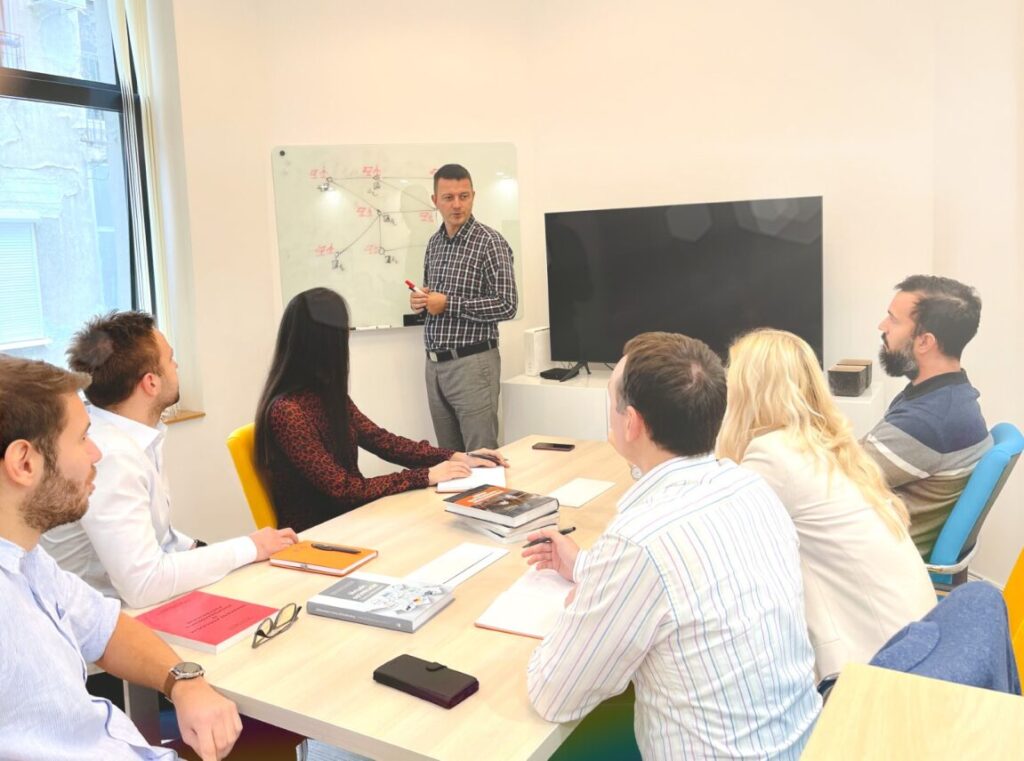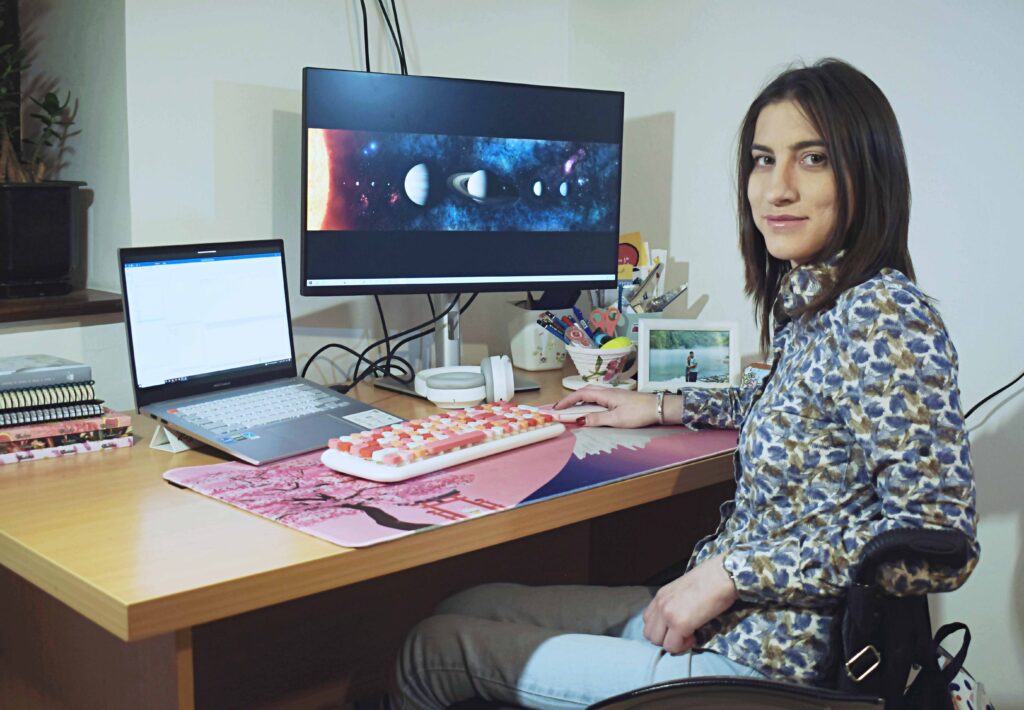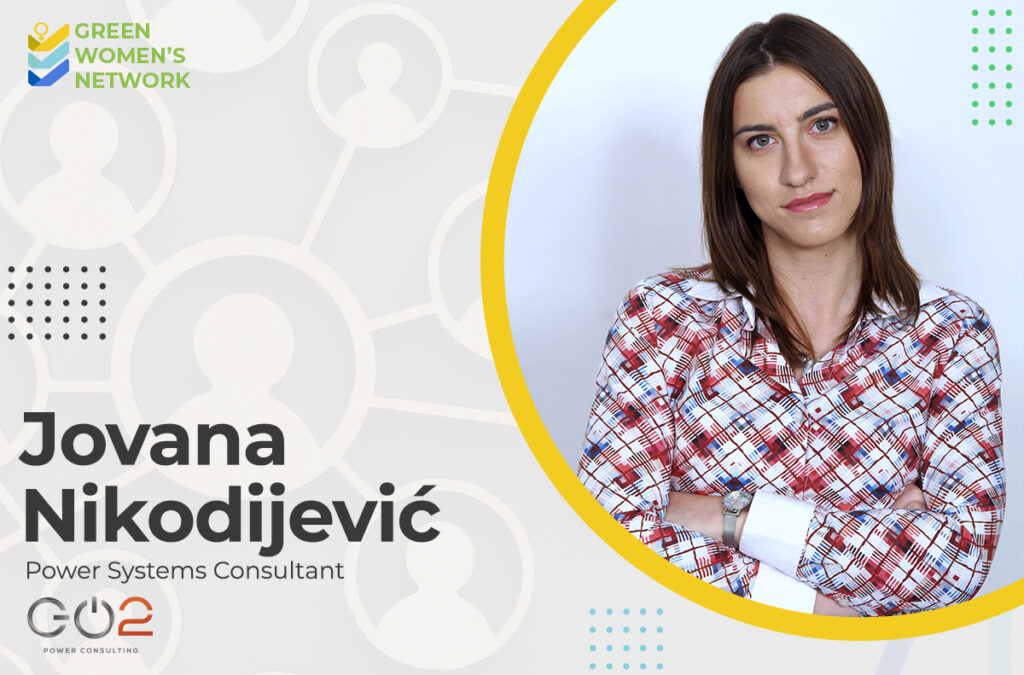Prejudices are most easily disarmed with a positive attitude, smile and self-confidence – this “recipe” for fighting stereotypes is practiced by Jovana Nikodijević. And despite the fact that she is only 26 years old, she has encountered prejudice many times.
She graduated from the Faculty of Electrical Engineering after completing primary school and high school as a holder of Vuk’s diploma. And yet, inappropriate comments that she should change her occupation did not pass her by, with no other arguments than one – that she is a woman.
But she wants to make a positive impact on the world around her. That is exactly why she chose renewable energy sources. She is currently a Master’s student at ETF, majoring in Renewable Energy Sources, and at the same time works as an engineer for power systems at Go2Power d.o.o. Belgrade”.
In August 2022, she had an injury, after which she became a wheelchair user. This did not prevent her from continuing to play sports recreationally, actively visiting the gym, playing table tennis and practicing archery. Her hobby is playing board games, and in her spare time she is also engaged in youth activism and volunteering. She is a member of the youth board of the “Ana and Vlade Divac Foundation” in Zaječar.
For the RES Serbia portal, Jovana reveals why she is thinking about going abroad, what is the position of people with disabilities in Serbia, how important is activism among young people, and what perspective do renewable energy sources offer to young women.
Before you entered the Faculty of Electrical Engineering, you graduated from the Mathematics High School in Belgrade. How and when did you become interested in mathematics, and then in electrical engineering?
– Since I was a child, my curiosity has drawn me in different directions. Mathematics has always intrigued me, so in addition to everything else that interested me, it stood out as the only one in which I did not lose interest after a while. I think this is due to the fact that mathematics, while providing answers, raises new questions at the same time. Later, I realized that, for me personally, mathematics was an insufficiently tangible field and electrical engineering appeared to be a logical choice, combining mathematics with programming and physics, which I had come to love during my high school education.
During your upbringing, and later during your studies, did you encounter prejudice because you are a girl who chose a “male” field?
– I wouldn’t say that I encountered discrimination from people who work in electrical engineering or have contact with this field. On the other hand, from people who are not from that environment, mostly men of the older generation, I have repeatedly encountered some kind of condemnation, as well as inappropriate comments that I should change my profession, with no other arguments than that I am a woman.

For more than a year and a half, you have been working at Go2Power as an engineer for power systems. What does your average working day look like? What is particularly interesting to you?
– I usually spend the day modeling some power system, using some of the specialized software we use, and I often use programming as well. Some days we have meetings with clients, and if necessary, I consult with more experienced colleagues. Some coffee is also drunk in the common areas, and it is a tradition in the company that we all have lunch together.
Each project is a story in itself and through them I have the opportunity to get acquainted with different aspects and types of power analysis, which makes this job interesting, and in a way, unpredictable.
You are currently at Master’s studies at ETF, majoring in Renewable Energy Sources. What motivated you to choose this major?
– During my studies, I encountered different branches of energy. The opportunity to positively influence the world around me by doing what fulfills me motivated me to decide on RES.
Do you think that dealing with renewable energy sources in Serbia has a perspective?
– With the development of electronics and therefore, the cheapening of the technologies used for the development of RES, as well as the increasing pressure of society for more environmentally friendly ways of producing electricity, this sector has been undergoing major changes in recent years. With the integration of RES, due to their characteristics, such as intermittency, power systems face challenges related to system security, which is why a lot of attention is paid to research and development of new standards. Because of all the above, dealing with renewable energy sources in Serbia, and energy in general, has a great future.
Would you advise girls to look for a business opportunity in the RES sector?
– Of course. With the development of new technologies and the variety of new occupations in this field, I think that this sector can no longer be called exclusively male. The business is promising and dynamic, and at the same time it directly contributes to the reduction of pollution – one of the biggest problems of today.
How do you manage to fit everything: both studies and work, activism and hobbies?
– I am very active, I like to try different activities and learn new skills. I try to fit in an equal share of different activities on a weekly basis. When I’m not working, I make time for the gym or table tennis, a date or a board game night, activities related to activism or learning foreign languages. The priority is to set aside time for myself, whenever I need it. I consider a fulfilled day the one during which I did at least one useful thing. A good organization is important, a lot of persistence is needed, but the prerequisite is the will and motivation.

How important is it for young people to engage in youth activism and volunteering? What activities did you participate in as a member of the youth board of the Ana and Vlade Divac Foundation in Zaječar?
– This year I am a member of the Youth Board of the Ana and Vlade Divac Foundation in Zaječar, within the German development cooperation project “Perspectives for young people in rural areas in Serbia”, implemented by GIZ in partnership with the Ministry of Tourism and Youth, and in cooperation with the local self-government of the town of Zaječar. The goal of this project is to increase the participation of young people in the processes that concern them in the local community, through the allocation of non-reimbursable funds to projects initiated and managed by informal groups of young people.
By engaging in activism and volunteering, we have the opportunity to make our contribution to society, no matter how big it may be, and in this way we actively shape our future and the future of our fellow citizens. Through this kind of engagement, we primarily develop ourselves as a person, our organizational and leadership abilities, expand our horizons and learn to take initiative and responsibility. During this process, we feel fulfilled and appreciated, while strengthening our connection with the local community and our own capacities.
Have you, like many of your peers, thought about making a career abroad?
– I didn’t seriously think about going abroad until I became a wheelchair user. Taking into account the better attitude towards people with disabilities, starting with accessible architecture, better socio-economic status and less exclusion from society of people with disabilities, I cannot guarantee that I will not decide to take such a step, if I see that the situation in our society is not changing fast enough for the better.
An important part of your activism is aimed at improving the position of people with disabilities. What are the biggest problems of people with disabilities in Serbia today?
– Primarily, I would single out inaccessibility. A big problem is that when a solution is implemented, for example a ramp for wheelchairs, it is often not done according to the regulations and such ramps, no matter how independent we are, we cannot overcome them by ourselves due to the excessive slope. There is also a great stigma in society, as well as a misunderstanding of the needs and specifics of people with disabilities. Complicated bureaucratic procedures and lack of adequate information are a significant problem, and the constant need for health care requires a lot of money. Also, insufficient attention is paid to the mental health of persons with disabilities and their families.
What would you say to everyone who faces some kind of discrimination – how to deal with discrimination and prejudice?
– The most important thing is to always be aware that we are only obliged to prove ourselves to ourselves. Prejudices are most easily disarmed with a positive attitude, a smile and self-confidence. By giving off such energy, I try to break down prejudices before the person who sees me becomes aware of them. It is necessary to change entrenched attitudes that lead to discrimination – and we can do that primarily by our example.
On the other hand, what can and should society do at every level to ensure essential inclusiveness of vulnerable social groups?
– Primarily, attention should be paid to adequate education and information about the problems and difficulties faced by vulnerable social groups. I would like to cite my company as an example of good practice, which I encountered immediately after my injury. They offered me financial help, provided moral support and showed a great understanding of the specificity of my condition, for which I am immensely grateful.
On the other hand, we as members of society can do our best not to further complicate the situation for marginalized groups of people with our carelessness, for example by parking illegally or parking in a place provided for people with disabilities, and to spread awareness as much as possible about the difficulties faced by they meet.
Work should be done to encourage vulnerable social groups to become more involved in society, and thus become more visible and represented. As I have already stated, everything starts from the level of development of social awareness, and I believe that this should be a priority.


